Hi everyone, I've been dealing with hair loss for 10 years now (since I was 21 - l'm 31 now). It's been a very slow and gradual process. I also have a scalp condition - scalp inflammation seborrheic dermatitis — which causes crusty, pimple-like bumps, itching, and redness (see photos). I've got the condition mostly under control by using the shampoo Dermasence Seborra. Because of this, topical treatments aren't really an option for me - I'm looking more into oral treatments instead. That's why I need advice from people with real knowledge and experience to help me figure out how I can fight my hair loss effectively and as quickly as possible. I've been considering oral minoxidil and would like to start with a low dose (2.5 mg divided by 4 - so about 0.6 mg per day). I'm not sure if finasteride would make sense for me - whether I should take only finasteride or combine it with minoxidil - so l'd really appreciate your expertise. My DHT level is 32.0 (normal range: 23.2-101.5), so technically it's normal, but I suspect I'm still sensitive to DHT because ever since I started going to the gym in February, l've noticed a bit more shedding. I'm not sure if that's just a coincidence.. I also don't know whether my hair loss might be triggered by the seborrheic dermatitis — no doctor has been able to give me a clear answer on that so far. That's why l'm hoping to find the most effective oral treatment plan possible to preserve and regrow as much hair as I can.
Attachments
-
 IMG_3894.png129 KB · Views: 48
IMG_3894.png129 KB · Views: 48 -
 IMG_3893.png140.3 KB · Views: 45
IMG_3893.png140.3 KB · Views: 45 -
 IMG_3892.png129.4 KB · Views: 49
IMG_3892.png129.4 KB · Views: 49 -
 IMG_3891.png141.2 KB · Views: 45
IMG_3891.png141.2 KB · Views: 45 -
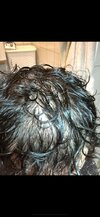 IMG_5463.jpeg92.9 KB · Views: 49
IMG_5463.jpeg92.9 KB · Views: 49 -
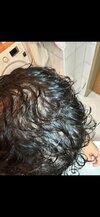 IMG_5462.jpeg80 KB · Views: 45
IMG_5462.jpeg80 KB · Views: 45 -
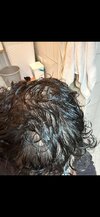 IMG_5461.jpeg86.2 KB · Views: 49
IMG_5461.jpeg86.2 KB · Views: 49 -
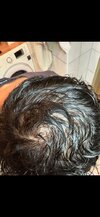 IMG_5460.jpeg90.2 KB · Views: 47
IMG_5460.jpeg90.2 KB · Views: 47 -
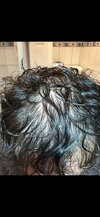 IMG_5459.jpeg105.9 KB · Views: 46
IMG_5459.jpeg105.9 KB · Views: 46
